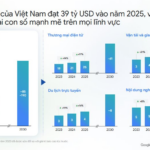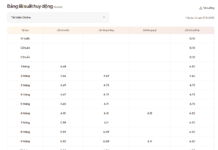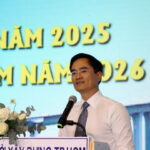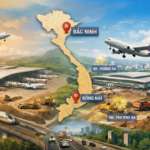On November 27, 2025, the Policy Committee of the Vietnam Banking Association, in collaboration with Vietcombank, hosted a seminar titled “Accelerating the Development of the Digital Banking Ecosystem.” The event aimed to create an in-depth forum where regulatory bodies and domestic and international commercial banks operating in Vietnam could gather, share practical experiences, and gain clearer insights into the opportunities and challenges of this new phase. This would provide a multifaceted perspective on how banks are expanding their cooperative networks and integrating services with partners both within and outside the industry.
In his opening remarks, Mr. Đỗ Việt Hùng, a member of the Vietnam Banking Association’s Policy Committee and the Board of Directors of Vietcombank, stated: “As the government intensifies its national digital transformation program, the banking sector is identified as a leading field, serving as the ‘financial infrastructure’ for the digital economy and online public services.”
“Building and accelerating the development of the digital banking ecosystem is, therefore, not only an internal need for each credit institution but also an urgent requirement to better serve citizens and businesses, promote economic growth, expand financial inclusion, and enhance state management efficiency,” Mr. Đỗ Việt Hùng observed.
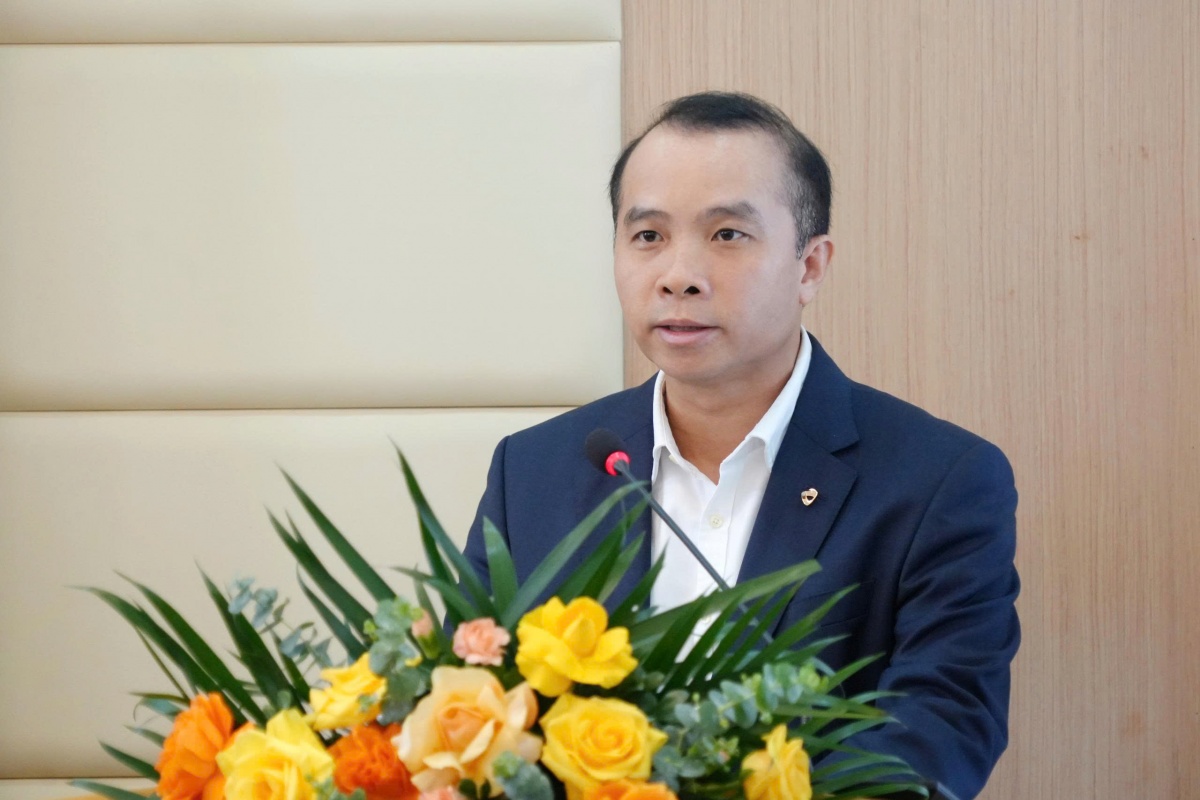
Mr. Đỗ Việt Hùng, Member of the Policy Committee of the Vietnam Banking Association, speaking at the seminar
Echoing this sentiment, Dr. Nguyễn Quốc Hùng, Vice Chairman and Secretary-General of the Vietnam Banking Association, noted that digital banking transformation is shifting toward a focus on “quality” rather than just “speed.” Amidst increasingly stringent regulations on personal data protection and electronic transactions, developing the digital banking ecosystem should not be confined to internal business activities. Instead, it should be developed with a regional linkage approach, facilitating customers while contributing to the prevention of cross-border fraud and scams—a pressing issue at ASEAN forums.
In Vietnam, the banking system is recognized as one of the fastest in digital transformation in the region, with impressive results that increasingly meet public demand. However, Dr. Nguyễn Quốc Hùng also highlighted challenges in technical connectivity and international payment standardization.
“There are instances where technical infrastructure is ready, but implementation still encounters obstacles. While QR payment channels with Laos and Cambodia have improved through active coordination, the cost and benefit-sharing mechanisms for expanding into international markets still require thorough discussion,” the Association leader cited, emphasizing that digital transformation is not a solo endeavor but requires a spirit of cooperation, tight linkage, and harmonized interests to build a unified, secure, and efficient ecosystem.
According to Dr. Hùng, the new legal framework on personal data protection, electronic transactions, digital identification, and national data infrastructure sharing is creating conditions for a new-generation digital banking architecture—more open yet more secure. To achieve this, each bank must shift from a single-system mindset to an ecosystem mindset, from internal optimization to linkage optimization, and from infrastructure competition to service competition.
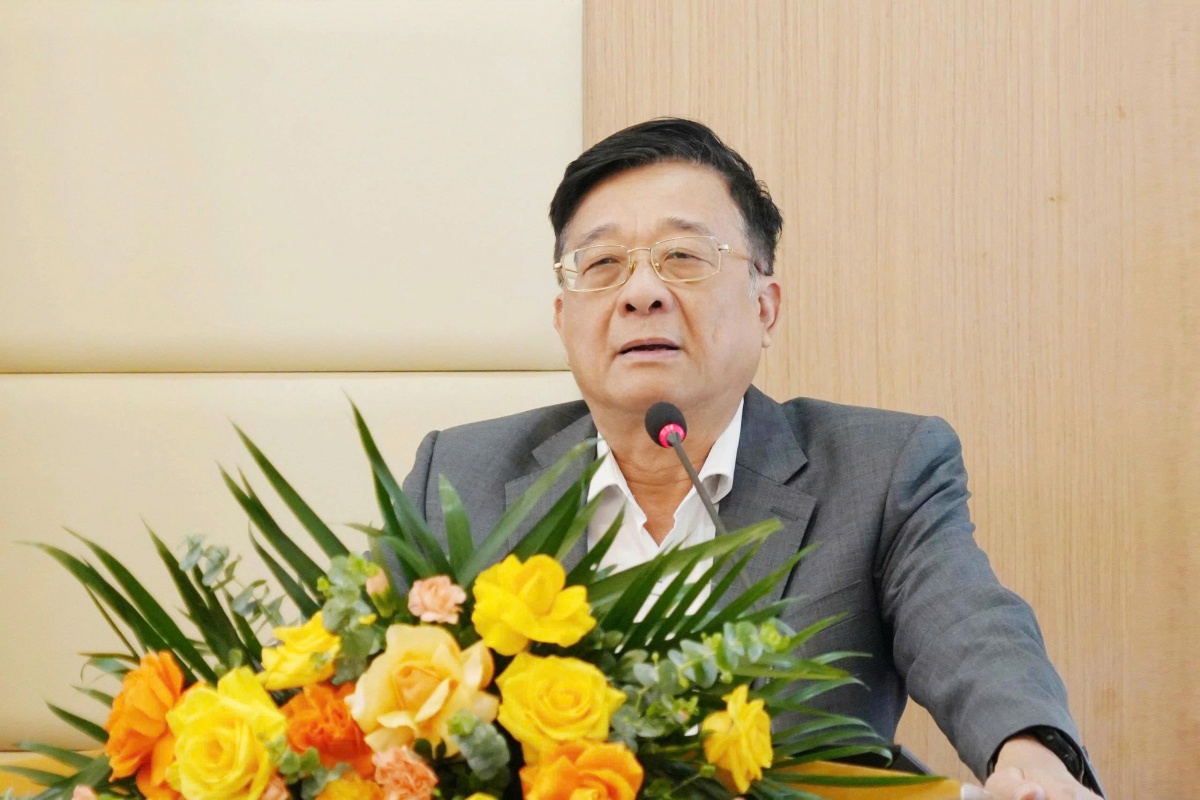
Dr. Nguyễn Quốc Hùng, Vice Chairman and Secretary-General of the Vietnam Banking Association, speaking at the seminar
Dr. Nguyễn Quốc Hùng stressed, “Digital transformation is not a solo endeavor but requires a spirit of cooperation, tight linkage, and harmonized interests to build a unified, secure, and efficient ecosystem.”
To address bottlenecks and accelerate the development of the digital banking ecosystem, Dr. Nguyễn Quốc Hùng proposed five key issues for immediate discussion and action:
First, standardization: Develop a shared digital platform to reduce connection costs and enhance customer experience.
Second, data mechanisms: Establish data-sharing and privacy protection mechanisms aligned with the Personal Data Protection Law.
Third, cybersecurity: Ensure safety and security as a prerequisite in every implementation step.
Fourth, financial mechanisms: Create a transparent fee framework and reasonable benefit-sharing mechanisms for cross-border services.
Fifth, international cooperation: Strengthen inter-sectoral collaboration, particularly in trade finance digitization and fraud prevention projects, with close coordination between the State Bank of Vietnam, commercial banks, and the Banking Association.
Mr. Hùng believes that unifying perspectives and sharing reasonable benefits will be key to Vietnamese banks expanding their services internationally and enhancing the competitiveness of the entire economy.
Unlocking Foreign Investment: Nam A Bank’s 3-Pronged Green Finance Strategy
At the 2025 Autumn Economic Forum held from November 25-27 in Ho Chi Minh City, themed “Green Transition in the Digital Era,” Nam A Bank actively participated as a key partner. The bank presented strategic proposals on green finance, aiming to unlock international capital flows and drive sustainable development.
Unlocking 10% Growth in the Digital Age: Strategic Roles for State-Owned Enterprises
In the proposed Political Report for the 14th National Congress, two key concepts—”state-owned economy as the leading force” and “private economy as the most important driving force”—are identified as the dual pillars of the economy. However, ensuring seamless coordination between these two economic components to achieve double-digit growth over the next five years remains a complex challenge.
Ho Chi Minh City Plans Comprehensive Survey on Smart City Standards
Mr. Lam Dinh Thang, Director of the Ho Chi Minh City Department of Science and Technology, announced that following the Autumn Economic Forum 2025, the city will engage with experts in specialized areas such as urban governance and smart city development. Ho Chi Minh City plans to conduct a comprehensive survey across all wards, communes, and special zones.
Vietnam Poised for Stunning Surge, Projected to Hit $39 Billion by 2025: Doubling Southeast Asia’s Benchmark
Achieving the $39 billion target by 2025 is not merely a milestone in economic growth but a testament to the adaptability and technological embrace of the Vietnamese people.





